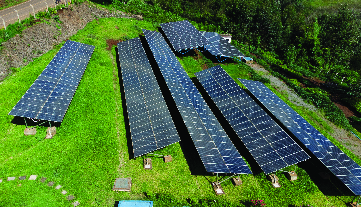
How Much Does Solar Cost in Kenya?

With rising electricity costs and frequent power outages, many Kenyans are turning to solar energy as a reliable and cost-effective solution. But how much does it actually cost to install a solar system in Kenya? This comprehensive guide breaks down the costs, factors influencing pricing, and available incentives to help you make an informed decision.
Solar System Cost Breakdown in Kenya
The cost of a solar system in Kenya varies based on several factors, including system size, quality of components, installation complexity, and location. Here's a general overview:
| System Size | Price Range (KES) | Suitable For | Ideal For |
|---|---|---|---|
| Small Residential Systems (1kW – 3kW) | 70,000 – 300,000 | Basic lighting, phone charging, small TVs, and radios | Small households or off-grid setups |
| Medium Residential Systems (3kW – 5kW) | 350,000 – 700,000 | Lighting, TVs, refrigerators, microwaves, and other common household appliances | Average-sized homes with moderate energy needs |
| Large Residential Systems (6kW – 10kW) | 700,000 – 1,000,000 | Multiple appliances, including washing machines, water pumps, and air conditioners | Large homes or small businesses |
| Commercial Systems (10kW – 50kW) | 1,000,000 – 5,000,000 | Offices, schools, hospitals, and small factories | Businesses with higher energy consumption |
| Industrial Systems (50kW and Above) | 5,000,000 and above | Large factories, industrial plants, and large-scale commercial operations | Enterprises with substantial energy requirements |
Factors Influencing Solar System Costs
- System Capacity: Larger systems with higher kilowatt (kW) ratings cost more but can power more appliances.
- Quality of Components: Premium solar panels, inverters, and batteries may have higher upfront costs but offer better efficiency and longevity.
- Installation Complexity: Challenging terrains or complex roofing structures can increase installation costs.
- Location: Remote areas might incur additional transportation and logistical expenses.
- Battery Storage: Incorporating battery storage for off-grid or hybrid systems adds to the initial investment.
Long-Term Savings and Return on Investment
Investing in a solar system can lead to significant long-term savings:
- Reduced Electricity Bills: By generating your own power, you can drastically cut or eliminate monthly electricity expenses.
- Energy Independence: Solar systems provide a reliable power source, especially in areas prone to outages.
- Environmental Impact: Utilizing renewable energy reduces your carbon footprint.
- Increased Property Value: Homes equipped with solar systems often have higher resale values.
Conclusion
The cost of installing a solar system in Kenya varies based on individual needs and system specifications. However, with available government incentives and the potential for long-term savings, solar energy presents a worthwhile investment for both residential and commercial users.
Ready to make the switch to solar? Contact reputable solar providers in Kenya like Suntech Power on 0719034950 to get a customized quote tailored to your energy needs.
Back to Blogs
